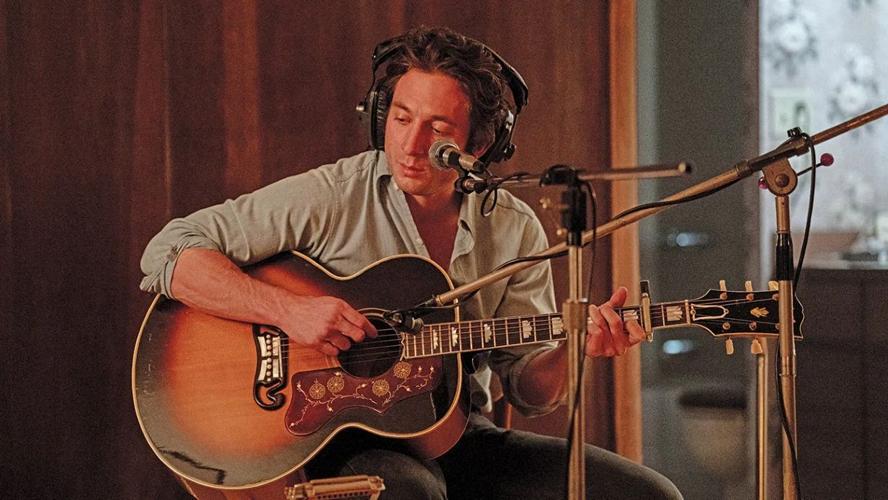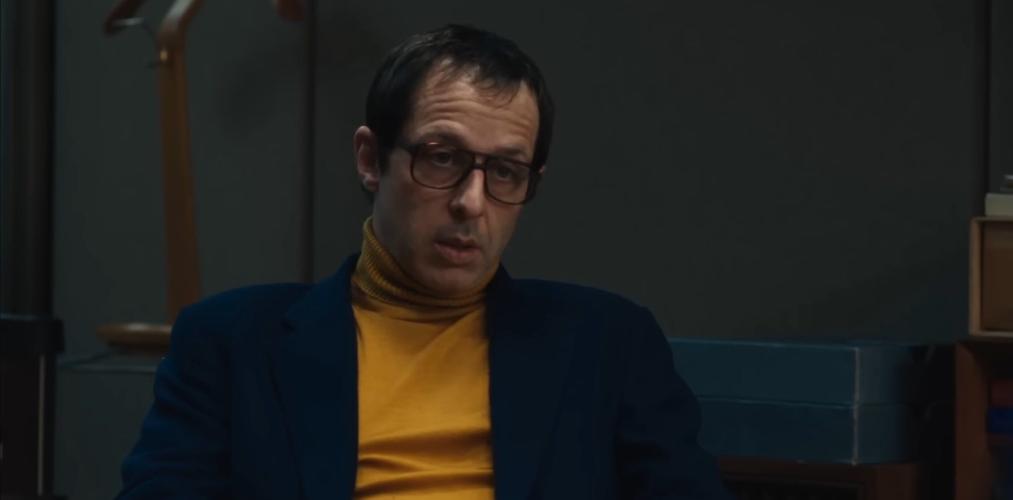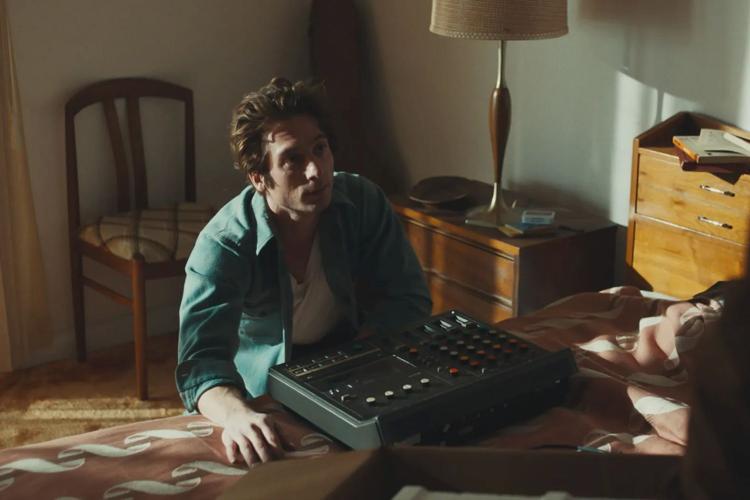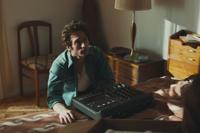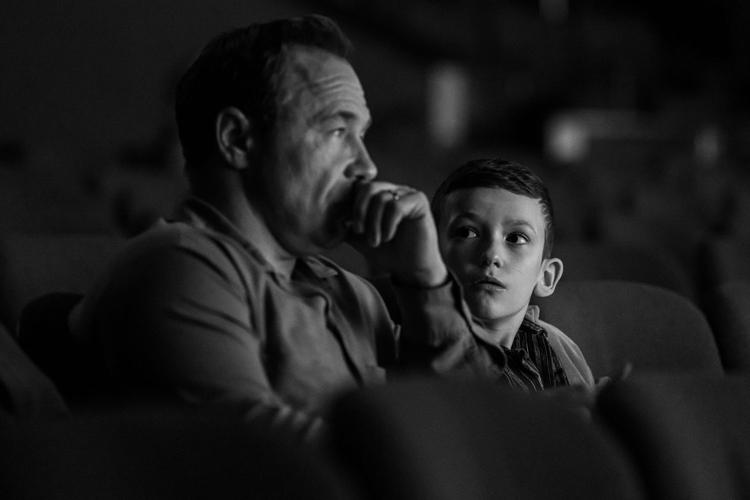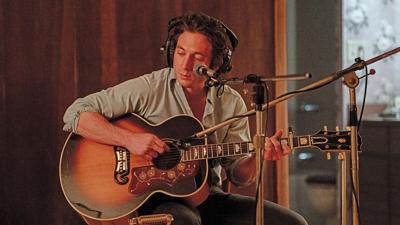Bruce Springsteen is a singer-songwriter and guitarist from New Jersey. He's sold more than 140 million records. He's one of the best-selling music artists of all-time. His nickname is "The Boss." His most successful album was Born in the U.S.A. (1984). He's gone on to win 20 Grammy Awards, including the Grammy Hall of Fame. He won an Oscar, was nominated for an Emmy and was honored with a special Tony Award. He even got the Presidential Medal of Freedom. Given his stature and his cultural legacy, it makes sense a biopic would be made about him. Of course, so many music biopics exist. Most of them walk us through the lives of the singers or musicians showing us how they came up with their famous songs, as well as their rise in popularity, how it affected them and how they handled it. Some are big and bombastic, befitting their subjects, such as Rocketman (2019) and Elvis (2022). Others are quieter and more stripped down like Love & Mercy (2014) or the classic Coal Miner's Daughter (1980). This film, written and directed by Scott Cooper (Black Mass and Crazy Heart) lies in the latter category. It's quieter and stripped down, which in this case is very much befitting its titular character.
Jeremy Allen White (The Bear and Shameless) stars as Bruce Springsteen who has just finished his tour in 1981 and has decided to go to his home state of New Jersey, specifically Colts Neck, which is near the Jersey Shore and near one of Bruce's favorite places, Asbury Park. Bruce's manager is pushing him to do more news media, given Bruce's popularity is rising. Bruce's record label is also pushing for more hit singles. Bruce doesn't want to do just hit singles. He wants to do a whole album that tells a story from beginning to end or more so than just a collection of random tracks. He decides to spend his down time alone in his house so that he can write new material. He also has the idea to record that material in his bedroom with a low fidelity machine that uses cassette tapes. He doesn't want to record in a studio with all of its fancy equipment and a large band. He very much wants a quieter and stripped down, almost folk sound, which might lend to comparisons to the recent biopic about folk artist, Bob Dylan, that of A Complete Unknown (2024).

Jeremy Strong (The Apprentice and Succession) co-stars as Jon Landau, the aforementioned manager and record producer who has been working with Bruce since 1975. He knows that Bruce wanting to record songs in this stripped-down way won't work in terms of reproducing those songs in a proper studio. Jon also knows that the record label won't like this stripped-down sound because it's significantly different from what Bruce has done before. It might not be commercial and make money, which is the label's chief concern.
Whether new work from an artist will be commercial or whether it differs from stuff they've done before has been explored numerous times in biopics. What potentially sets this film apart from the others is it felt like this narrative would be about the process of recording music or sound to a physical medium, the analog process, as opposed to the current digital process. It felt like this film would be more about a technological process rather than a purely artistic one. However, the film doesn't dig into the technological details as much as it could have. It didn't need to explain how and why the expensive studio couldn't replicate the sound on Bruce's cheap home recording machine. Bruce likes an echo sound that he gets at home that gets distorted in the studio. Yet, walking us through the process to fix that distortion could have been intriguing and made that part of the story feel more unique and outstanding, rather than perfunctory.

It's interesting to see what inspired Bruce to write his album Nebraska (1982), if one isn't a Springsteen fan. If one is a fan, it's arguably only surface-level in terms of delving further into those inspirations. For example, one of the inspirations was Badlands (1973), a film about a serial killer who went on a murder spree in the state of Nebraska. In the film, we see Bruce researching the serial killer named Starkweather. It was a very notorious case and Terrence Malick's 1973 film is very well done, powerful and quite beautiful. However, Bruce's interest is never really explored on a deeper level beyond him seeing the film on TV one night. We never learn why exactly Bruce thought making music about this case or this killer was worthy of his time.
Stephen Graham (Adolescence and Boardwalk Empire) also co-stars as Douglas Springsteen, the father to Bruce. Strangely, Douglas reminded me of a character from another Malick film. Douglas reminded me of the father from The Tree of Life (2011). Douglas might be an alcoholic. He spends most of his time, sitting at a bar, so much so Bruce's mother has to send Bruce to get him. Douglas is also abusive. We don't see him hit his wife, but he does comes off as threatening to her. He also comes off as threatening to Bruce too in that he's a father trying to toughen his son under the guise of learning to fight, which is akin to a scene in The Tree of Life.

Raised by a father like Douglas can be traumatizing, which is really what this film is after. How Bruce made his music is kind of a throwaway here. We're led to believe that Bruce's childhood is a factor in the music he's making. Black-and-white flashbacks to his childhood reinforce this, but there isn't much connective tissue that drives home what Bruce feels about any of this. Yes, White's performance and the overall tone are meant to convey that Bruce was suffering from depression. If that wasn't clear, title cards at the end confirm what probably was a clinical diagnosis. It's a shame because we do get one scene of Bruce in therapy but he's given no dialogue. Bruce only gets one scene of dialogue with Douglas, which under-serves Graham as an actor, but it also under-serves both father-son characters. Yet, that scene, which involves Bruce sitting on Douglas' lap, was probably my favorite scene of the whole film.
Rated PG-13 for themes, some sexuality, strong language and smoking.
Running Time: 2 hrs.
In theaters.

